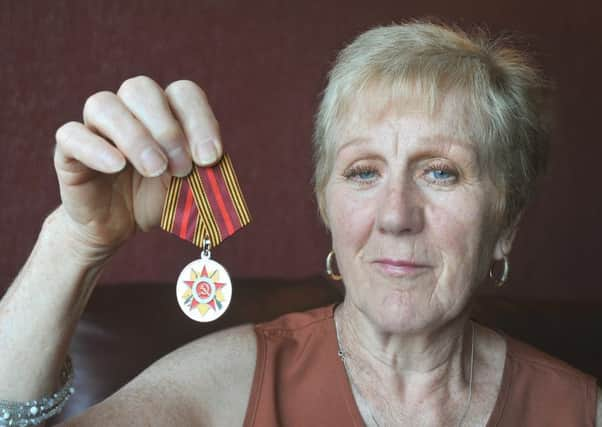Russian honour for late convoy veteran


Former seaman Wilfred Robertson has been posthumously awarded a commemorative medal by the Russian government – almost two years after he received the Arctic Star for his service during the Arctic convoys between 1941 and 1945.
Mr Robertson, who ran sweet shops in St Annes and Ansdell following his retirement from service, died in April 2014, aged 96, just over six months after the award of the Arctic Star to him at St George’s nursing home, in Marine Drive, Ansdell,
Advertisement
Hide AdAdvertisement
Hide AdHis grandson Matthew, who lives in the North East, had applied for it on his behalf. At the time, the Russian government was being lobbied to consider also awarding a commemorative medal to the veterans who served in the campaign which was seen as a key turning point of the Second World War.
And three months after her father’s Arctic Star award, following a change of heart by President Vladimir Putin, Estelle and son Matthew were given the opportunity to apply for a Russian medal.
“Dad died the following April and more than a year has passed since, but last week out of the blue, a package arrived containing the medal and a letter from the Russian embassy by decree of President Putin,” said Estelle Drummond, of Belmont Road, Ansdell.
“It is so sad that Dad isn’t here to see it but he would have been so proud.”
Advertisement
Hide AdAdvertisement
Hide AdAlmost 1,400 Allied merchant ships were used during the convoys, which were escorted by warships from the Royal Navy, Royal Canadian Navy and US Navy.
In total 85 of the Allies’ merchant ships were lost during the campaign, along with 16 warships.
“Dad used to say how frightening it was on the convoys because if he’d have been hit that would have been it,” added Estelle. “We thought it was very important for him to get recognition of this.”